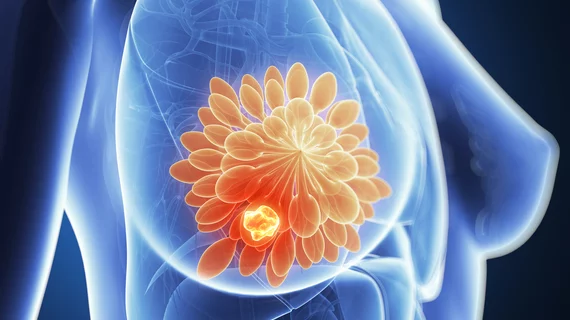High-profile $100M mammography trial gains steam, hitting 50,000-participant mark
A high-profile, $100 million mammography trial is gaining some steam, recently hitting the 50,000-participant mark, but is still falling short of its lofty original enrollment goals.
Investigators first launched the National Cancer Institute-backed Tomosynthesis Mammography Imaging Screening Trial, the agency’s largest such endeavor, in 2017. TMIST aims to compare digital breast tomosynthesis with older 2D mammography technology. Organizers had hoped to hit 165,000 enrollees by 2021, but the pandemic and other factors have hampered the trial, according to previously published reports.
However, radiologists leading the effort are expressing optimism as TMIST hit the half-century mark while also securing 111 study sites in the U.S. and abroad. Those involved said it is now the fastest growing trial sponsored by the cancer institute, with enrollment doubling since COVID-19 arrived.
“Since the CDC-recommended non-urgent care shutdown ended in July 2020, TMIST has gained more patients than all other [National Institutes of Health] trials. Yet, more sites and women are needed,” radiologist and Study Chair Etta Pisano, MD, said Friday, July 16.
Along with comparing the two imaging systems through a randomized control trial, TMIST also strives to build one of the world’s largest curated data sets of breast cancer screening images and biospecimens. Those involved said they’ve already compiled one of the most racially diverse populations in any cancer institute trial. Roughly 19% of participants are Black, compared to an average of 8%, and 25% of TMIST participants are Latina.
Currently only about 44% of accredited mammography scanners are DBT units, organizers noted, while 23% of U.S. imaging facilities are without such technology. One recent JACR study found that radiologists image Black women less frequently for breast cancer than their white counterparts, often underusing digital breast tomosynthesis.
The National Cancer Institute at one point was considering whether to discontinue TMIST, forming a work group to review its funding, Medscape wrote last year. Investigators have reportedly struggled to enlist sites and patients, partly because many physicians are already convinced digital breast tomosynthesis is superior. COVID-19 reduced the trial’s monthly patient accruals by 50% between March and August compared to previous months.
In September, however, Pisano underscored the trial’s building success and intention to work with the National Cancer Institute to “reach TMIST endpoints more efficiently.”

